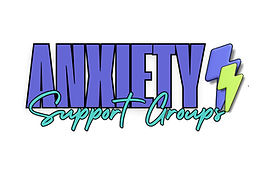Expert Relationship Anxiety Therapist in West Hollywood
When Anxiety Stops You from Enjoying Relationships
Here in the heart of West Hollywood, just off at 8702 Santa Monica Boulevard, I'm a therapist with a decade of experience working with individuals and couples who know that love and anxiety make relationships even more challenging.
Relationship Anxiety Therapy In Los Angeles


If you're looking for relationship anxiety therapy, my office is conveniently located in West Hollywood, close to the Sunset Strip on Santa Monica Blvd. Book a free consultation call with me today and I can answer your questions and tell you the next steps.
Anxiety's Impact On Relationships.
Anxiety in relationships is significantly connected to reported higher levels of marital distress, and with anxiety affecting 19.1% of U.S. adults - it's highly likely that this impacts you and your connection to the people you care most about.
Anxiety has a terrible way of, turning what should be a source of comfort into a constant source of worry.
Maybe you're questioning whether you truly love your partner, obsessing over every small conflict, or feeling paralyzed by the fear of being hurt?
Or perhaps you've noticed yourself seeking constant reassurance, checking your partner's social media, or creating distance to avoid the vulnerability that intimacy requires?
These are some of the more common ways relationship anxiety can block intimacy and connection in a relationship, and are the exact things I work on with couples in my practice.
Signs of Relationship Anxiety: Recognizing Your Patterns
The signs of relationship anxiety extend beyond typical relationship challenges. You might notice body signs like stomach problems before seeing your partner, or find yourself compulsively checking their social media for evidence of problems. Perhaps you experience panic attacks when they don't respond immediately to texts, or feel physical tension that no amount of reassurance can ease.
Your attachment style—formed through early experiences with caregivers—shapes how these symptoms manifest. Those with anxious attachment styles often seek constant validation, while individuals with avoidant patterns might create distance when emotional intimacy increases. Some clients struggle with Relationship OCD (ROCD), experiencing intrusive thoughts about whether they truly love their partner or obsessive comparisons to other couples.
Common signs include overthinking every conversation, needing excessive reassurance about your partner's feelings, catastrophizing about potential breakups, avoiding commitment despite wanting connection, and experiencing physical symptoms during conflict. These patterns often stem from traumatic experiences or inconsistent caregiving that disrupted your ability to form secure bonds.
Signs of Relationship Anxiety: Recognizing Your Patterns
Reassurance
Seeking
Constantly checking in throughout the day
Reading into every tiny change
Needing constant reassurance
Hyper-vigilance In Romance
Keeping notes of "suspicious" behavior
Checking their phone and social media
Testing their partner with little traps
Keeping Love At A Distance
Never fully opening up or keeping things back.
Always having an exit strategy.
Pulling away when things get too good
Attachment Theory, Your Core Beliefs And The Rules Of Relationship Anxiety.
Your attachment wounds didn't develop overnight, and they won't heal through willpower alone. Perhaps you know your attachment style but are left not really knowing what to do about it?
Attachment theory reveals how early experiences with caregivers create internal working models—core beliefs about whether you're worthy of love and whether others can be trusted. These unconscious templates drive your emotional responses in adult partnerships.
When attachment issues remain unaddressed, they manifest as trust issues, fear of abandonment, or emotional disconnection and they come back to haunt us as adults. You might find yourself recreating familiar but painful dynamics, choosing partners who confirm your deepest fears about love. This isn't your fault—it's your nervous system trying to protect you using outdated coping mechanisms that no longer serve you.
Attachment theory is a foundational component of my work, but you probably won't hear me talk about it because the root causes of your distress are valuable to understand, the impact is happening today - and that's where the ten rules of relationship anxiety comes in.
The Ten Rules Of Relationship Anxiety
The "Ten Rules of Relationship Anxiety are a way I describe the patterns of anxiety that show up for us- it's as if we've been tricked into following them -but once you know them, you can start breaking them.
They're deeply ingrained patterns or thought processes that anxiety creates in our minds, convincing us that following them will keep us safe in love. The cruel irony is that these very rules often create the relationship problems we're desperately trying to avoid.
What makes these rules so powerful is that they feel completely logical when you're in the grip of anxiety. Your brain presents them as reasonable responses to relationship uncertainty, making it hard to recognize that you're following a script written by fear rather than love. Understanding these patterns is the first step toward breaking free from them and building the secure, trusting relationship you actually want.
.png)
My Integrated Treatment Approach: Multiple Pathways to Healing
As a certified mental health professional trained in multiple modalities, I don't believe in one-size-fits-all treatment to anxiety or couples therapy. Your therapy sessions with me will draw from various evidence-based therapies, each chosen to address specific aspects of your experience, and the patterns of anxiety that are showing up for you.
The approach I use blends elements of the following ideas:
Cognitive Behavioral Therapy (CBT) helps you identify and challenge the thought patterns fueling your emotional distress. We'll examine how your interpretations of neutral events create unnecessary suffering and develop more balanced perspectives. I'll also help you see how anxiety in relationships is exacerbated by mental processes that don't serve us.
Emotionally Focused Therapy (EFT) for couples focuses on creating new bonding experiences that gradually rewire your attachment system. Through structured exercises, you and your partner learn to express vulnerable emotions safely, building the secure connection you both crave. You'll also likely hear me say that 'overthinking is a function of under-feeling' - a core symptom I spot often.
Acceptance and Commitment Therapy (ACT) teaches you to make room for uncomfortable feelings without being controlled by them. Instead of fighting your thoughts, or treating them as facts, you'll learn to observe them with curiosity while taking values-based action in your partnership.
For those struggling with ROCD, Exposure and Response Prevention (ERP), Eye Movement Desensitization and Reprocessing (EMDR) or Accelerated Resolution Therapy for processing traumatic experiences can be helpful and I can find specialists to work with you for that.
Additional approaches I integrate include Gottman Method Couples Therapy for improving communication skills, Dialectical Behavior Therapy (DBT) for emotion regulation, Imago Relationship Therapy for understanding how you chose your partner, and when appropriate.
Specialized Support for Different Presentations
For Social Anxiety Impacting Romance:
When social anxiety intersects with romantic concerns, dating becomes doubly challenging. We'll address both the general anxiety disorder symptoms and specific fears about romantic judgment or rejection.
For Those Questioning Medication:
While I don't provide medication management services directly, I collaborate with Psychiatric Mental Health Nurse Practitioners when appropriate. We'll discuss whether medication might support your therapy work and provide referrals if needed.
For Families:
Sometimes relationship anxiety stems from family therapy needs—unresolved family dynamics affecting your capacity for intimacy. I offer family therapy to address generational patterns affecting your current partnership.
Your Journey: From First Contact to Lasting Change
Getting started begins with choosing a therapy booking platform or contacting my West Hollywood office directly. During our initial consultation, we'll explore your specific concerns and determine whether individual or couples therapy—or a combination—best serves your needs.
Your first few therapy sessions focus on assessment and building safety. We'll map your attachment style, identify triggering situations, and begin developing coping mechanisms for immediate relief. This isn't just about managing symptoms—it's about understanding what your emotional distress is trying to communicate.
As we progress, sessions delve deeper into reshaping core beliefs and healing attachment wounds. You might explore how childhood trauma or early experiences created templates for love that no longer serve you. Through consistent work, including homework assignments between sessions, you'll develop new neural pathways supporting secure attachment.
Online Therapy Options for Greater Flexibility
Understanding that relationship anxiety can make leaving home challenging, I offer online therapy throughout California. Virtual sessions provide the same evidence-based treatment while eliminating commute stress. Many clients appreciate being able to process difficult emotions from their own space.
Whether you choose in-person sessions at my West Hollywood office or online therapy, you'll receive the same comprehensive care. Some clients even alternate between formats based on their needs each week.
Creating Your Personal Support System
While professional help forms the foundation of recovery, building a broader support network accelerates healing. I may recommend joining a support group or our anxiety support groups where you can connect with others facing similar challenges. The shared experience reduces isolation and provides real-world practice for new communication skills.
Beyond Individual Work: Couples Therapy for Relationship Anxiety
While individual treatment addresses your personal patterns, couples therapy provides a therapeutic setting where both partners can heal together. Relationship anxiety affects both people—while one experiences the symptoms, the other often feels helpless, rejected, or exhausted from providing constant reassurance.
In our couples therapy sessions, we'll explore how your different attachment styles interact, creating what we call a "couple's dance." Perhaps one partner's anxious attachment style triggers the other's avoidant tendencies, creating a painful pursue-withdraw dynamic. Or maybe both partners share anxious attachment styles, escalating each other's fears.
Through structured exercises and homework assignments, you'll develop new communication styles that foster security rather than triggering old wounds. You'll learn to recognize when past trauma hijacks present moments and develop shared strategies for staying connected during emotional storms.
The Gottman Method provides research-based interventions for managing marital conflict, while Imago Relationship Therapy helps you understand why you chose each other—often to heal childhood wounds. This isn't about blame; it's about understanding how you can become healing agents for each other.
FAQ Addressing Common Concerns
"What if therapy reveals we're incompatible?"
Worries like this are normal and also a sign of relationship anxiety - but for the record, therapy for relationships doesn't predetermine outcomes. Instead, it clarifies what's fear-based distortion versus genuine incompatibility. Most clients discover that addressing attachment issues actually reveals deeper compatibility than they imagined.
"Can you help with panic disorders and relationship anxiety together?"
Absolutely. Panic attacks often accompany romantic distress.
We'll address both the panic disorder symptoms and their specific triggers within your partnership, developing comprehensive strategies for both issues.
"What about porn use affecting our connection?"
Sexual concerns, including porn use, often intertwine with attachment issues and emotional disconnection. We can address these sensitive topics within the broader context of rebuilding intimacy and trust and figure out how much anxiety is playing into this concern.
"How do you maintain professional boundaries while being warm?"
Personal space and professional boundaries create safety for deep work. While I maintain clear boundaries as your mental health professional, our therapeutic setting will feel warm, accepting, and genuinely caring.
Taking Your First Step Toward Secure Love - Beating Relationship Anxiety's Rules
From my practice in the heart of West Hollywood, steps from Santa Monica Boulevard's bustling energy, I've witnessed countless individuals and couples transform their emotional distress into emotional well-being. You don't have to navigate relationship anxiety alone.
Whether you're struggling with ROCD, trust issues from traumatic experiences, or simply want to develop healthier communication skills, evidence-based therapies can help. Together, we'll uncover the patterns keeping you stuck and develop the security you need to love fully—without losing yourself.
Contact my West Hollywood office today to begin your journey from relationship anxiety to authentic, secure connection. Because everyone deserves to experience love as a source of peace, not panic.
.png)
%20(26).png)

